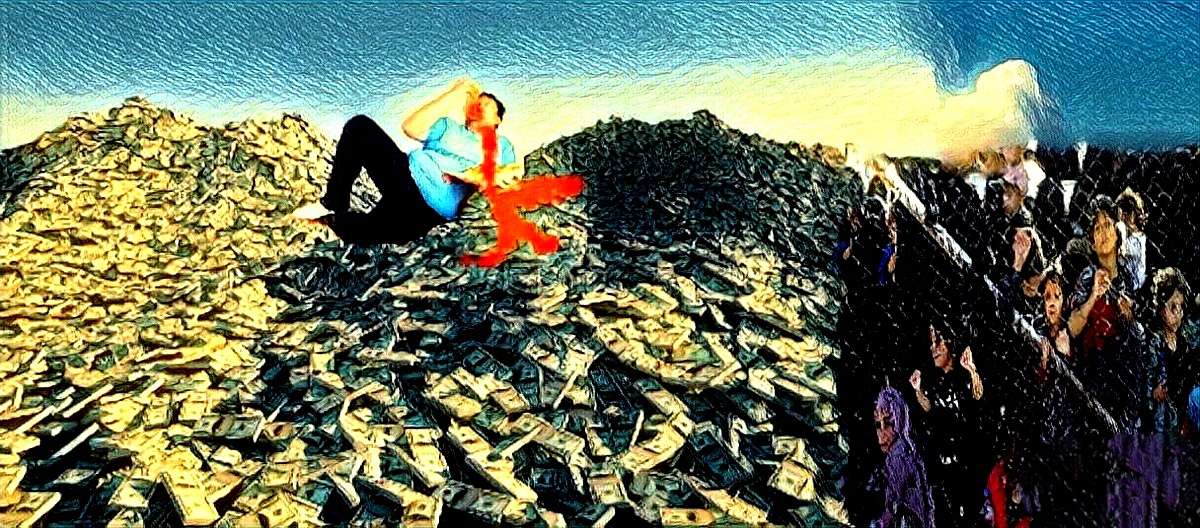
Corruption, a pervasive and multifaceted phenomenon, casts a long shadow over societies worldwide, eroding trust, hindering development, and perpetuating inequality.It manifests in various forms, from petty bribery to grand-scale embezzlement, and its implications ripple through every stratum of society.
Defining the Beast: Forms and Manifestations
Corruption, at its core, involves the abuse of entrusted power for private gain.This can take many forms:
- Bribery: The offering, giving, receiving, or soliciting of any item of value to influence an action.
- Embezzlement: The misappropriation of entrusted funds or assets.
- Fraud: Deceptive practices intended to secure unfair or unlawful gain.
- Extortion: The obtaining of something through force or threats.
- Nepotism and Cronyism: Favoring relatives or friends in appointments and awards.
- Influence Peddling: Using one’s influence to obtain favors for others, often in exchange for payment.
These acts can occur within public or private sectors, blurring the lines between legality and ethical conduct.
The Devastating Implications:
The consequences of corruption are far-reaching, impacting various aspects of society:
- Economic Stagnation:
- Corruption distorts markets, discourages investment, and hinders economic growth.
- It diverts public funds from essential services like healthcare and education, leading to inefficiency and waste.
- It increases the cost of doing business, discouraging entrepreneurship and innovation.
- Political Instability:
- Corruption erodes public trust in government institutions, leading to social unrest and political instability.
- It undermines the rule of law, creating a climate of impunity and lawlessness.
- It can facilitate the rise of authoritarianism and weaken democratic processes.
- Social Inequality:
- Corruption disproportionately affects the poor and marginalized, who lack the resources to navigate corrupt systems.
- It exacerbates existing inequalities, creating a cycle of poverty and exclusion.
- It undermines social cohesion and erodes the sense of fairness and justice.
- Environmental Degradation:
- Corrupt practices can lead to the exploitation of natural resources without regard for environmental consequences.
- It can undermine environmental regulations and facilitate illegal logging, mining, and pollution.
- Weakened Public Services:
- Funds that should be used for hospitals, schools, and roads are diverted into the pockets of corrupt officials.
- This leads to poor infrastructure, inadequate healthcare, and a decline in the quality of education.
The Roots of Corruption:
Understanding the causes of corruption is essential for developing effective countermeasures:
- Weak Governance: Lack of transparency, accountability, and the rule of law creates fertile ground for corruption.
- Low Salaries and Inadequate Incentives: Public officials with low salaries may be tempted to engage in corrupt practices to supplement their income.
- Culture of Impunity: When corrupt individuals are not held accountable, it sends a message that corruption is acceptable.
- Lack of Public Awareness: A lack of public awareness and engagement can allow corruption to thrive unchecked.
- Complex Bureaucracy: Overly complicated bureaucratic processes can create opportunities for bribery and extortion.
Combating the Scourge:
Addressing corruption requires a multifaceted approach:
- Strengthening Governance: Promoting transparency, accountability, and the rule of law.
- Enhancing Public Sector Integrity: Implementing ethical codes of conduct and strengthening oversight mechanisms.
- Promoting Public Awareness: Educating citizens about the dangers of corruption and empowering them to report corrupt practices.
- International Cooperation: Collaborating with international organizations to combat transnational corruption.
- Technological Solutions: Utilizing technology to enhance transparency and track public funds.
- Empowering Civil Society: Supporting independent media and civil society organizations that play a crucial role in exposing corruption.
Corruption is a complex and deeply rooted problem, but it is not insurmountable. By adopting a comprehensive and collaborative approach, societies can work towards building a more just and equitable future.






Leave a Reply